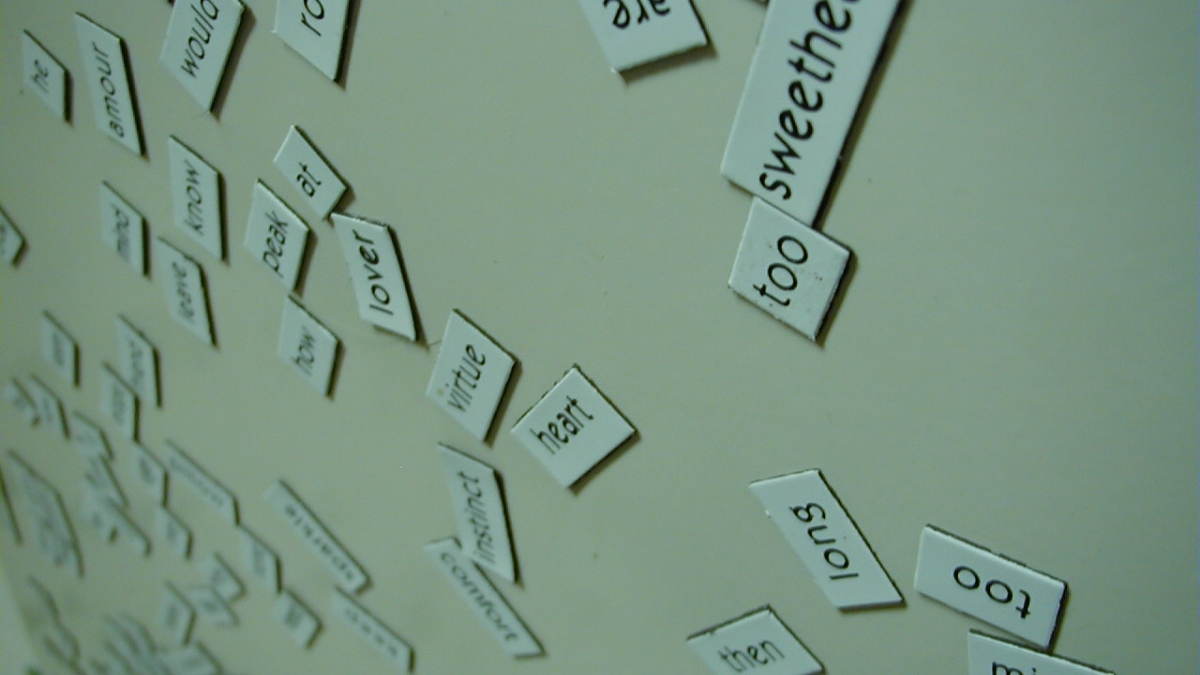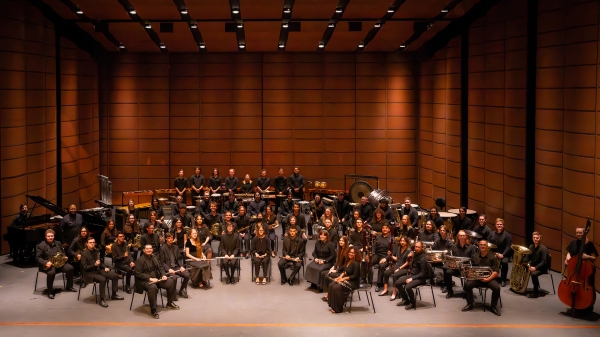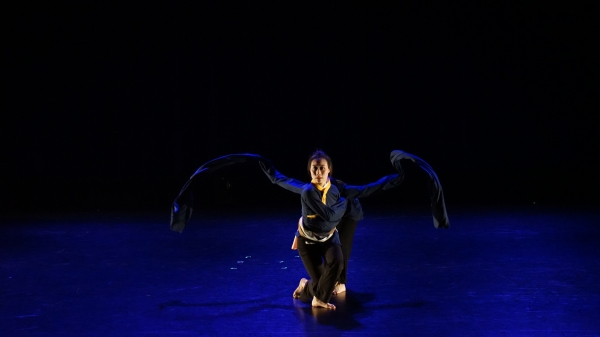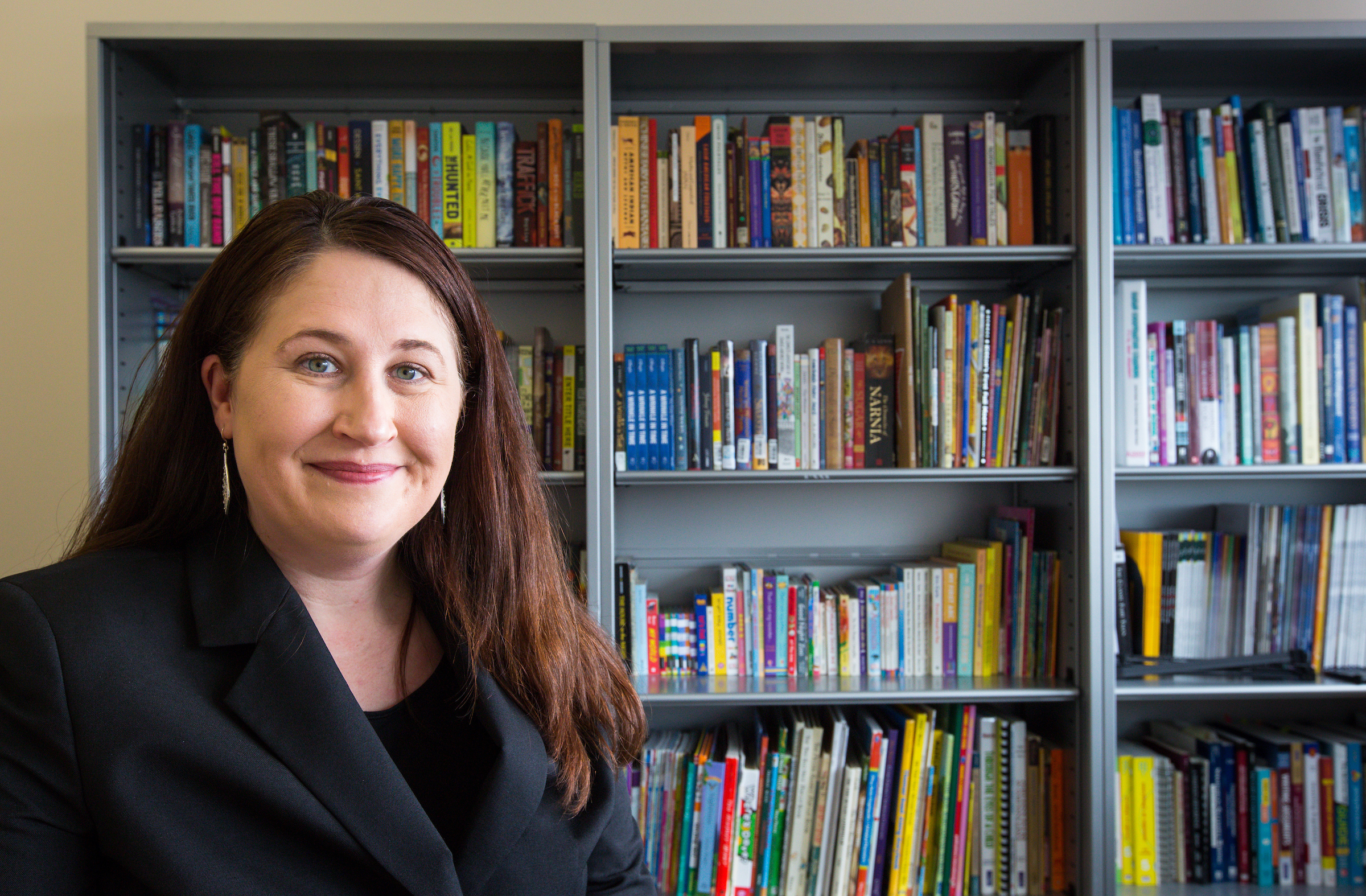'Sparky Slam' will create supportive space for teens to share poetry
ASU professor's research finds healing, power in young peoples' writing

Words can heal, and an Arizona State University professor is creating a way for young people to harness the power of poetry in their own and others’ lives.
Wendy Williams, an assistant professor of English education in the College of Integrative Sciences and Arts, has organized the first “Sparky Slam,” a free spoken-word poetry event for high school students to be held Saturday at ASU’s Polytechnic campus in Mesa.
At the slam, students and teachers will get a chance to express their poetry in a supportive group setting, according to Williams, who studied the benefits of youth poetry and writing.
Wendy Williams, an assistant professor of English education at ASU's Polytechnic campus, has created a poetry slam for high school students to be held at 6 p.m. Saturday, March 25. Photo by Charlie Leight/ASU Now
“I want to create a space at ASU that supports youth spoken-word poetry, and I want students to feel comfortable coming to ASU, because for some of them it will their first time stepping foot at a university and I want them to realize it’s not a scary place,” she said.
Williams discussed her research with ASU Now:
Question: In your research, what did you find out about young people and poetry?
Answer: I did a yearlong study of a youth spoken-word poetry group in Arizona, and I was so impressed with how much love was in this group. It was a place of healing. I saw poets share stories about abuse, about losing a parent, just really painful stories sometimes. But they would use the medium of spoken-word poetry to heal.
At the end of that study, I ended up sharing a poem of my own about my mom dying and it really helped me to heal, and I understood firsthand that this is a powerful medium.
A lot of the benefits were associated with the group and the atmosphere the group leader was able to create. The next year I went into a high school poetry club, and I found that while the out-of-school poetry group was more effective at getting kids to open up, the high school club had them writing more regularly.
There are benefits to both situations.
Q: Are there connections to rap music?
A: That’s what everyone wants to know. I’m an outsider — I don’t study rap or listen to it. I came to youth-literacy research through heavy metal. When I was in high school I was in a band, and I ended up performing in my high school talent show so when I was a high school teacher I wanted to start a talent show to show off their talents. I had two youth rappers who were amazing. That’s how I came to out-of-school research.
There are connections between rap and poetry — the rhythms and use of rhyme. A lot of people do both, and both spoken-word and rap are part of hip-hop culture.
I’m more concerned with writing practice — where do they write, when, why.
Q: And do they?
A: One thing that has surprised me about all this youth-literacy research is how much kids write outside of school when they get to choose the format and the topic and they can perform for an authentic audience. This is something we need to pay attention to in education. We need to give them choice in format and topic. This is what they choose to do when they’re not with us. They’re clever about it and resourceful. They’re able to find these groups and audiences and able to teach themselves complicated music-making software. When they want to learn something, they do it.
Next semester, I’m teaching a “young authors’ studio,” where ASU students will take an internship course for credit and act as mentors to kids who come in from the community for free writing workshops on Saturday mornings. There will be loose themes like art or music, and the ASU students will develop mini lessons.
“Sparky Slam” will be held from 6 to 8 p.m. Saturday in room 134 of the Agribusiness Center at ASU’s Polytechnic campus. Students can come at 4:30 p.m. to get help writing or revising their work. The event will be moderated by Tomas Stanton, an ASU student and director of the youth poetry group Phonetic Spit. For details, click here.
For information on the Young Authors Studio course, contact Williams at wendy.r.williams@asu.edu.
More Arts, humanities and education

Sociology student passionate about preventing domestic and gender-based violence
Editor’s note: This story is part of a series of profiles of notable spring 2024 graduates. With so many diverse career options available to students, uncovering individual passions and ambitions is…

ASU Wind Symphony’s performance at regional conference motivates, inspires
ASU Wind Symphony students describe their recent performance at the College Band Directors National Association, or CBDNA, Regional Conference in Las Vegas and the journey that led them there as “…

Spring Dance Fest features guest artists, student choreographers
The School of Music, Dance and Theatre will premiere two new works by guest artists Michele Byrd-McPhee and Frankie Martinez at this year’s Spring Dance Fest. Arizona State University students will…
